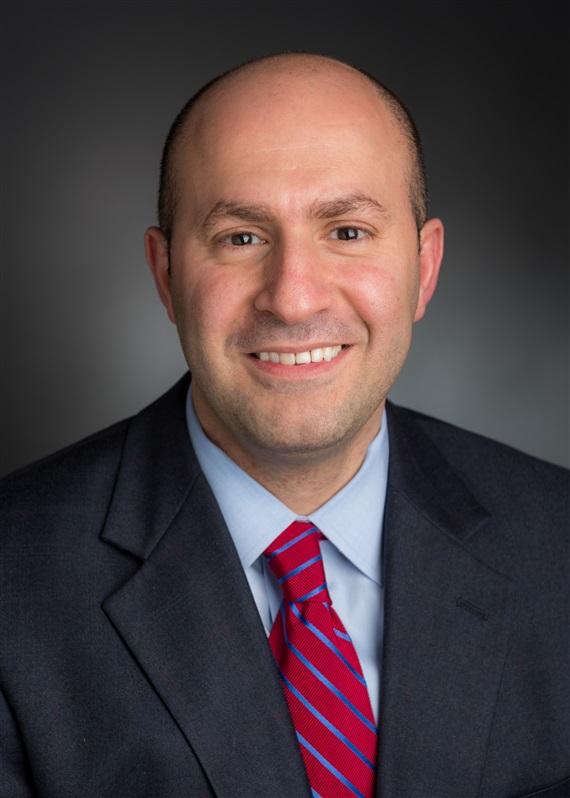Immunotherapy drug delays recurrence in kidney cancer patients
- An immunotherapy drug given after surgery improved disease-free survival rates in patients with kidney cancer at high risk of relapse.
- Interim results of a phase 3 trial of adjuvant therapy revealed a 32% decrease in the risk of recurrence or death with pembrolizumab compared with a placebo
- This is the first positive study of adjuvant immunotherapy in patients with kidney cancer at high risk of relapse.
Treatment with an immunotherapy drug following kidney cancer surgery, prolonged disease-free survival rates in patients at high risk for recurrence, according to an interim report of a phase 3 clinical trial of adjuvant immunotherapy in this patient population.
Patients who were treated for nearly a year with pembrolizumab experienced a longer delay before the disease recurred, compared with those who got a placebo, said Toni K. Choueiri, MD, of Dana-Farber Cancer Institute, reporting on the KEYNOTE-564 clinical trial. This translated into a 32 percent decrease in the risk of recurrence or death in the first two years of the trial. Choueiri, the director of the Lank Center for Genitourinary Oncology at Dana-Farber, is presenting the findings in a plenary presentation to the American Society of Clinical Oncology (ASCO).
“KEYNOTE-564 is the first positive phase 3 study of an adjuvant immunotherapy in this setting and is a potential new standard of care,” said Choueiri, who led the study. The report contained the first pre-specified analysis of the trial data.
Adjuvant treatment is additional therapy given after the primary treatment to lower the risk that the cancer will come back.
Reporting on the KEYNOTE-564 trial results to date, Choueiri said the estimated disease-free survival at 24 months after surgery was 77.3% with pembrolizumab treatment versus 68.1% with placebo. The trial is continuing to see if the adjuvant treatment increases overall survival. There have been too few deaths thus far to answer the question, but Choueiri said, “the early signs are quite promising.” The estimated overall survival rate at 24 months was 96.6% with pembrolizumab and 93.5% with placebo.
The KEYNOTE-564 trial was designed to evaluate adjuvant immunotherapy following partial or radical nephrectomy (removal of the cancerous kidney) within 12 weeks prior to randomization. The double-blind, phase 3 study, carried out at multiple sites internationally, enrolled 994 patients who were randomized to pembrolizumab once every three weeks for about a year, or a placebo. Pembrolizumab targets a molecular pathway that cancer cells commandeer to evade recognition and killing by the body’s immune system. By blocking this “checkpoint” pathway, the drug helps free the immune system - primarily with its army of T cells - to combat tumors.
For inclusion in the trial, patients were required to have a clear-cell component of their tumor and be at intermediate-high or high risk of recurrence. This risk level was defined as tumor stage 2 with nuclear grade 4 or sarcomatoid differentiation, tumor stage 3 or higher, regional lymph node metastasis, or stage M1 (metastases that had been surgically removed) with no evidence of disease.
The primary endpoint was disease-free survival, which is the time from randomization to the first documented local or distant renal-cell carcinoma recurrence or death due to any cause. Overall survival, defined as the time from randomization to death due to any cause, is a secondary end point.
The median disease-free survival was not reached in either the pembrolizumab or the placebo arm. The estimated percentage of patients who remained alive and recurrence-free at 24 months was 77.3% with pembrolizumab and 68.1% with placebo. The researchers are continuing to monitor the patients to determine if there is a difference in overall survival between the two arms of the trial, which Choueiri said may take additional follow up.
Most patients in both arms had at least one adverse event, and 32.4% of patients in the pembrolizumab arm had a grade 3-5 adverse event versus 17.7% in the placebo arm. No treatment related deaths were reported with pembrolizumab. The most common adverse events in both groups were fatigue, diarrhea, and itching, and adverse events with the greatest risk difference between the two arms were hypothyroidism, hyperthyroidism, itching and rash. In the as-treated population, 101 patients (20.7% in the pembrolizumab arm) and 10 patients (2.0% in the placebo arm) discontinued study treatment due to any-cause adverse events.
In conclusion, the study authors said, “our results support the use of pembrolizumab for patients with intermediate-high or high risk of disease recurrence in the adjuvant setting.”
Choueiri said researchers will look for biomarkers to help determine which patients need adjuvant therapy. “There are patients in our study who were very likely cured only with surgery and didn’t need any adjuvant therapy, and there are patients who received pembrolizumab and still their disease progressed.”
The research was supported by Merck Sharp & Dohme Corp., a subsidiary of Merck & Co., Inc.
Pembrolizumab versus placebo as post nephrectomy adjuvant therapy for patients with renal cell carcinoma: Randomized, double-blind, phase 3 KEYNOTE-564 study (abstract LBA5) will be presented virtually during the Plenary Session on Sunday, June 6, 2021, 1:00 pm – 4:00 pm ET.
For all ASCO-related media inquiries, call or email Victoria Warren, 617-939-5531, Victoria_Warren@dfci.harvard.edu. Follow the meeting live on Twitter using the hashtag #ASCO21 and follow Dana-Farber on Twitter at @DanaFarberNews.
Watch video: Dana-Farber's Toni K. Choueiri, MD details the impact of the study.
Media Contacts
If you are a journalist and have a question about this story, please call 617-632-4090 and ask to speak to a member of the media team, or email media@dfci.harvard.edu.
The Media Team cannot respond to patient inquiries. For more information, please see Contact Us.
